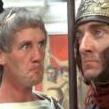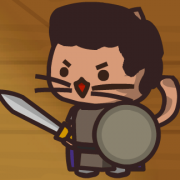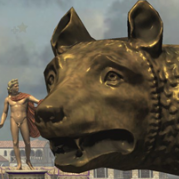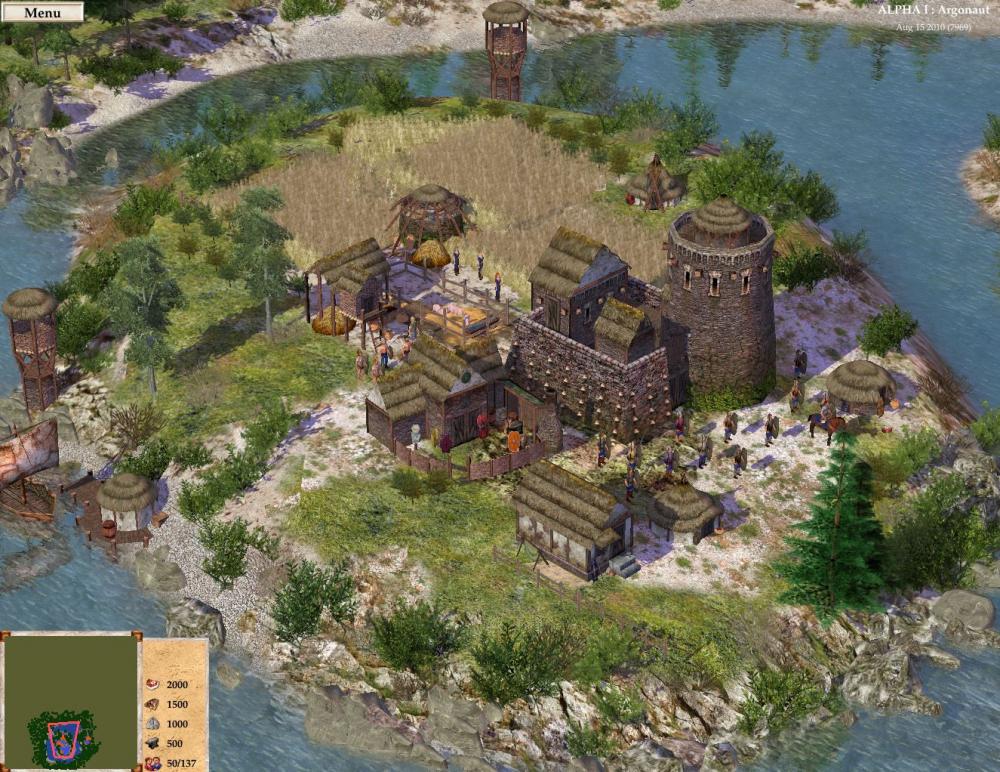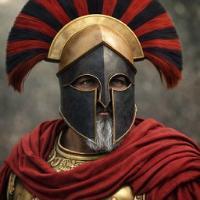Leaderboard
Popular Content
Showing content with the highest reputation on 2021-02-19 in all areas
-
Greetings everyone, The new and hopefully final release candidate (RC) is here! Revision: rP24933 Windows: https://releases.wildfiregames.com/rc/0ad-0ad-0.0.24rc3-24933-alpha-win32.exe MacOS: https://releases.wildfiregames.com/rc/0ad-0ad-0.0.24rc3-24933-alpha-osx64.dmg All RCs are available here: https://releases.wildfiregames.com/rc. The one you want is 0ad-0.0.24rc3-24933-alpha-** PLEASE READ THIS BEFORE POSTING & TESTING The RC installer will overwrite the current installed version. The RC will use your current config including mods, so make sure to disable EVERYTHING (fgod, autociv, and badosu's mods are not supported) You might get warnings about hotkeys, we redesigned completely the system, so you might have to fix some of them (you may want to backup your config file if your intend to play A23B again It goes without saying but even though we are really close to a release, this is an experimental version. macOS 10.11 and below are no longer supported. windows XP and Vista are no longer supported. If you want to help more you can also perform those steps Launch a random game Launch a skirmish. Connect to the lobby Play on the lobby with someone Launch Atlas and try things out there Open Unit tests demo (To see if there any breakage in displaying entity's) (It's in scenarios) Try mods through modio only. (A23B MODS WILL NOT WORK) Enable feedback and see if it works (Main menu) Connect to and use mod.io Test replaying new games Test Screenshots (F2) Test Big Screenshots (Maj+F2) Test hotkeys Test Saving and loading a game. Test Quickload/Quicksave If you need any help ping me And of course you can play games with the RC. CHANGELOG: rP24933 [Windows] Automated build. Author: autobuild rP24932 Do not generate render data in case CDecal calculated wrong coordinates. Author: vladislavbelov rP24931 Fix error when unsetting a hotkey. Author: wraitii rP24930 i18n issues: Spanish manual & gamesetup tips text. Author: wraitii rP24929 Fix variant loading order Author: Stan3 points
-
Why me? Anyway, I've now standardized the German translation of “Javelineer” to Speerwerfer (instead of Speerkämpfer). Actually, healer and infantry heroes now have 1000 health, cavalry 1200, elephants 1500. Elephant heroes inflict more damage too (in A23 their damage per second was much lower than that of champion elephants). What has been standardized is that all heroes now have a training time of 50 s and cost 0 population. More important than health is their aura(s), which vary greatly in effectiveness. Heroes weren't balanced in previous alphas at all, however, in A24 heroes can be trained only once each, thus unbalanced heroes are now much less of a problem. Thank you, that's nice to know.3 points
-
I think the best argument for why archery ranges and stables should exist, regardless of accuracy, would be due to tells if we will. At the moment, when I watch high level 0 AD players, I see little scouting before aggression. While there are undoubtedly other reasons behind that such as map generation, this shows the fact that it is usually difficult to predict the build order based on structures in place. Age of Empires 2 and Starcraft 2 are both games where the idea of working against specific unit compositions is critical to success, and 0 AD theoretically is the same. Having specialised structures do that means that players that look for that intel are rewarded. Whether the stable-barracks-archery range system is historical or not is a bit inconsequential for our purposes. 0 AD is meant to represent the old rock-paper-scissors formula.3 points
-
If I recall correctly, hero HP have been standardised to 1000. All gameplay changes are discussed at https://code.wildfiregames.com and you're free to give your opinion on any diff there. Keep in mind that this is the first release in 2.5 years, so it's a bit exceptional.2 points
-
why should be gameplay of 0ad similar to gameplay of some other game?2 points
-
The problem with this argument is that "barracks" themselves aren't exactly historically accurate either (save for the Romans perhaps, whose barracks looked different than ours)... By and large, they are an RTS abstraction, like standalone towers. The thing is, archery ranges are a fun abstraction, and mesh well with the division between infantry, artillery, cavalry etc. And the distinction between archers at least, and melee infantry, I would argue is quite relevant. As far as I understand, they were usually recruited from different sections of the population (often even different places) and functioned as distinct units. Same goes for other infantry skirmishers like dedicated slingers and javelineers, like the famous peltasts. Of course, many ranged units would have a sidearm for close quarter melee combat if it came to that, and many melee infantry units would have had some javelins and even slings, but generally still operated quite differently to dedicated skirmishers. Basically, in my opinion ignoring the archery ranges is a missed opportunity, from an RTS perspective. I hope they make it into Alpha 25. The models are beautiful and unique, and I think they would look great in-game, and would be welcomed by a significant majority of the playerbase.2 points
-
I recently updated the Alpha 24 pre release version where I found lots of cool changes last time I updated it. However, I found that the infantry mercenaries now cost 60 metel, cavalry merc cost 80 metal. They used to be 25 metal so this is very different because there is almost no point to having mercs if you could just get champion guards for almost the same. Champion guards are only 20 more metal than the mercenaries which make mercs have very little worth. Additionally they cannot collect resources anymore? Are these changes going to effect in the final Alpha 24? I really appreciate all the contributions to the game and the rapid development (:1 point
-
I almost missed it, myself. Sounding the heads up, so we all watch it live. https://youtu.be/sty0e6l3Y3Y By the way, the UAE sent a probe to orbit Mars, and it arrived safely a week ago or so, but since it's the UAE that did it, it gets no media attention. It is, however, not just a "we did it" thing; it is full of valuable instruments. https://emiratesmarsmission.ae/1 point
-
so much for that Corio(n)t(e/i)gos? Yes. I prefer coriotegos, but that's only a matter of taste. Anyway a true barrack doesn't exist during this period. Even for the "Polybian" legions, I don't think there is a single evidence for a permanent barrack as those we see during the Roman Empire. Especially for the Celts, what men could have been in a hypothetical barrack? Barracks don't fit the Celtic societies in my opinion. Mmm personally I like coriosedlon but what is your opinion? The same.1 point
-
Well, the definition is given as jarðhús, which is literally Old Norse for earth house, so I don't think that works either. True. Home and house is different for Irish and Welsh. I think 'house of warriors' is less abstract though, since a barrack is technically the living-area for a soldier. What do you think of just using 'warrior-house' (the last suggestion)? Would you consider it less problematic? Still, I would accept having tegos for Briton and sedlo(n/s) for the gauls, though I still think 'seat of the warriors' is a bit too abstract for 'barracks' . Would you prefer the Sedlo(n/s)corion version, or Corio(n)sedlo(n/s)? Gah the image is just too pixelated to read properly. I can maybe see a B myself.1 point
-
Where to start? Standing armies were rare and standardized, mass-produced equipment was the exception rather than the rule. People were expected to bring their own arms. Citizens were typically not paid either, so people needed to be wealthy enough to be able to afford being away from land and family for weeks or months. The poor were therefore not expected to fight (and had limited political influence as a consequence). Nor were foreigners, freedmen, slaves. Cavalry was supplied by the rich, because horses were only useful for warfare and quite expensive to keep, so a lot of land is needed. While it's true archers, javelineers, and slingers may have the same function on the battlefield (psiloi, light infantry), they hailed from very different backgrounds. Archery is a skill that takes years to hone, hence something for the leisure class of families wealthy enough to have others work their land. Moreover, composite bows were delicate objects requiring great skill to make and great care to keep in good shape, they weren't cheap. Slinging requires even longer to master than archery, however, slings were basically strips of cloth or leather and picking up stones is free too, hence why they had very low social status; slingers typically came from poor, rural areas where boys herded the flocks (not necessarily their own) and used slings to keep the animals together, chase away wolves, and generally kill the time. Javelins, spears, swords, daggers, and (in ancient China and mediaeval Europe) handheld crossbows required little to no skill in comparison and could be used by basically anyone. Child mortality was very high in the premodern world, therefore people had many children in order to have a son survive into adulthood to continue the bloodline and take care of his parents in their old age. If multiple sons survived into adulthood and would all start a family of their own and divide their parents' property amongst them, then all would live in poverty; therefore it was not unusual for extra sons to try their luck abroad. Mercenaries were professional soldiers, unlike citizen soldiers, which were basically untrained militia. Even the Spartans were only superior in comparison: their famous agōgē programme included singing, dancing, chasing hares into traps and clubbing them to death, but not any really that much weapon training; it was more about fostering social cohesion and an esprit de corps (not entirely unlike the British public schools (i.e. private boarding schools)). As for marching and drilling, this too was more of an exception than a rule. Macedon indeed drilled its troops and practiced forced marches, which allowed their armies to move more quickly than their enemies expected, a not unimportant aspect, facilitating their military successes. Rome, too, had troops more disciplined than others, as well as much more flexible formations on the battlefield and chainmail. Most importantly, though, (and unlike Greek city-states) was the gradual extension of citizenship, which meant Rome had a much larger pool to draw troops from, allowing them to absorb losses and raise new armies. Anyway, the discussion is definitely going off-topic right now .1 point
-
Fair enough, that's convincing and quite distant from a borrowing from English, Hebrew or Latin. I have just seen that on wikipedia: https://en.wikipedia.org/wiki/Téach So maybe it is a particular thing in the British Isles and especially Ireland. We can split the difference and choose your option for the Britons and mine for the Gauls. If it is ok for you? The reading is difficult on that one: https://encyclopedie.arbre-celtique.com/coriossedenses-6594.htm Some people read it Coriobedenses. For Lezoux plate it is easier, everyone read it as coriosed- or corsiosed- although the meaning in the sentence is difficult to assess.1 point
-
Tech talman is attested in a 10th century Irish poem in the Saltair na rann, ln. 3196. Teach othar is given in a dictionary from 1732 for 'infirmary', which you could argue is late enough for heavy Germanic influence with Middle English sykhous, and Lat. domus scripturarum could influence tech screptra. I will concede here, though I would still be ok with using 'house of', moreso than 'seat of', personal preference alone. I was wrong, *sêdns is not stated to mean tumulus, but 'seats'. The meaning given of tumulus for *sedo- and *sîdos- comes from OIr. síd, fairy-fort. MW hedd, peace, similar in MCor. and MBret. The issue I have with Coriossedens(es) is the morphology. It appears like *sedens(es) is gen.pl. of a N-stem noun, and Delamarre himself gives the stem as *sedum(-?), which is not the same as *sedo- or *sedlo-, but could be plausibly a derivation of them, and he suggests the meaning is 'residence', though I can't see how he came up with it. It's a bit odd in both sources, but it might be fine. I can't tell. I don't want to be overly critical, especially since I'm not that knowledgeable in this field.1 point
-
I doubt those words are really attested, they seem to be reconstructions. Othrus is attested in Old Irish laws but I don't see tech othrais. I really have the feeling it is modern. Edit: I checked again and the oldest possible case I see is Teach Duinn in Lebor Gabála Érenn, but it is hard to say if it is figurative, literal or a borrowing from Hebrew (where the concept of 'house of God' is very strong, especially in the case of Lebor Gabála Érenn it is dubious since this source is clearly forcing the use of foreign words into Irish myths). *sedo- is given by Delamarre, Lambert and Koch. I don't see how tumulus or peace would fit in the previous examples. I have checked the etymology of Sedunum which is the ancient name of a well known town in Switzerland and various sources gave sed- as "seat" / "seated" That's the thing. Oikos is logically the equivalent in Greek because it is related to a wide concept of home, household and property. And I don't think it can be used either as an equivalent of "house of" like in English (house of the lords, house of the commons, etc. etc.). Although maybe it is the case in Irish with Teach/Tech, I am skeptical. I don't see this trend in ancient toponyms of France, Switzerland and Belgium. If teg- had been used in such a way, I would expect to see it everywhere. Like house in Old English and other Germanic languages (Hüsem/Husum in Germany, Etainhus and Sahurs in Normandy, Huizum in Netherlands etc.)1 point
-
Thanks. Will look in that as well and update my previous word info. My concern with using -towtâs is that it might be saying 'heart of the people' more than 'heart of the tribe', hence why I went for either using -wentâs, or using seat (sedlo-). Old Irish has quite a few house of constructions, such as tech othrais, house of the sick (hospital), tech screptra, house of the scripts (manuscript library), tech sét, house of jewels (treasury), and tech talman, house of dirt (dungeon). Modern constructions for 'barracks' also use 'house of' constructions, so I think it should be passable. Because they would probably use οἶκος instead. PIE is finicky like that. Words with the same etymology have vastly different uses. Tegos became the primary word for house in both Brittonic and Goidelic languages. Hmmm. Interesting, but then Matasović gives *sêdns as meaning either 'tumulus', or 'peace', rather than specficially 'seat', which he ascribes only to *sedlo-. UoWales gives only *sedo-,*sedlo, and *sodyom for 'seat'. Jones follows Matasović. Then I removed it from my word list.1 point
-
@jorellaf Oh thank you very much for your useful insights and suggestions. I really appreciate. That's exactly what I follow. I rely on Xavier Delamarre dictionary. Delamarre is mostly doing the same than Jaones. Obviously there should be some difference between ancient British/Brytonic and Gaulish, but the former is lesser known so relying on Gaulish is good enough. If we can know the difference, it is interesting to put forward. If not, Gaulish is acceptable. Tig- or teg- seem to be both attested, notably in Tigorix, Ciuotegetis and Tegonius. Delamarre suggests tegia because there are several old toponyms based on this root (Attegia, Ategiola, Adteia) and the surviving teza/tedza in some North-Italian dialects. Although it could be a general deformation due to Latin. He did mention *tegos- for the Insular languages. For me, your suggestion tegos is fine. Old Irish less 'courtyard', Welsh llys 'court, courtyard, palace', old Breton lis and middle Breton les for 'court, courtyard'. In Belgium, Lestines>Estines from a possible Listinas. It seems to designate a place of power. Well I am not very fond of Tigernotreba either. I made up this word because I wanted to differentiate the Britons from the Gauls on a few buildings. Tigern- is more common in the British Isles, I started from this, that's why. So your idea has my preference. Cridio(n)towtâs is interesting and catchy. Praesidium is basically a military outpost. In Latin, we have castrum, but the etymology is quite complex and difficult to mimic for a Celtic language. The word barrack comes from Old French and Old Spanish, barraca. Probably from barrum, clay/mud. Not useful in our case. So I found praesidium as an interesting case where the concept of seat is used in a military context for a building. Anyway the concept of "barracks" doesn't exist in ancient Celtic societies. This is a constraint from the gameplay, not from the historical evidences. I really dislike anything with 'house of' because this is inheriting a concept from English and other Germanic languages where the house is a wide and flexible concept. I am not sure that the Greek language is using the word στέγω (stégō) the same way English is using the word house. While Coriossedens(es) is attested by an inscription found in Gard (France) related to a people and coriiosed- is attested on Lezoux plate. The rotary mill has been removed because it is not historical accurate. There is indeed a manual rotary mill found in Gallic context, but the oldest evidences are suggesting North-Eastern Iberian context as the origin.1 point
-
It was not forgotten, people have raised concerns over hero standardization multiple times. All other aspects of the game are better now at least. And I'd rather have less hero abuse than a more rounded hero balance, so it's fine by now. And something that can be iterated over.1 point
-
Has not been forgotten, it’s just not a priority for a24 and it’s not something we’re going to change in this current pre-release state. Understand that one error does not replace another. The fact that he does not have an aura does not mean that he must have more health than the other heroes. We fixed a mistake that was extra health, for a25 we will give it a more interesting aura.1 point
-
I would personally like to move away from that approach of the Civic Centre training everything. A simple infantryman would be okay, but having an approach such as making Civic Centre military units be worse or take longer to train would both be good ways to change the structure into less of a military production centre. That all said, there are other intuitive ways of making the game have better build orders for the said scouting point. Cavalry units could only be trained after a corral has been placed; ranged units could be trained only after a bowyer has been built; mercenaries could be trained only after a market has been constructed.1 point
-
1 point
-
I found no major bugs. Minor things are: * Windows is offended that "publisher is unknown" and treats it as a security risk /wants to block the installation * Some strings are cut off in the summary page, because they are too long (language: German, afaik there is already a ticket for this) * The orientation of the starting CC seems to be different from a23? I had in mind that is was previously always facing toward the starting camera position. This is no longer the case (not sure if this is intentional, or if it just depends on the map)1 point
-
Favorite Singer: Miley Cyrus the Great (covered the song "Wild Horses", that gives a Cavalry bonus...)1 point
-
1 point
-
The previous alpha has the Carthaginian quinquireme only built in the “super dock”. Now it can also be built in the normal dock like the Romans and the successors. Is this intentional? Aren’t the hoplomachi and murmillones already in, or will be in the actual release?1 point
-
Yes, practice ranges exist for all civilizations in game and yes, they're unused. This is intentional. One reason is functional. In A24, the barracks is for infantry, the stable for cavalry, the elephant stable for elephants, the arsenal for siege engines, the dock for ships, the temple for healing, and the fortress for defending territory. We don't treat e.g. ranged cavalry differently from melee cavalry, so why should we have a separate structure for ranged infantry? The other reason is that we care about historical accuracy. While (semi-)permanent practice ranges are well-attested for mediaeval England, early modern Europe, or the present-day United States, there is no evidence whatsoever for their existence in antiquity. (Please prove me wrong if you happen to know of any.) Moreover, dedicated heavy troops (i.e. melee infantry) often had one or two javelins and dedicated light troops (i.e. ranged infantry) often had a sword as a sidearm. Just because Age of Empires has them doesn't mean 0 A.D. should do the same.1 point
-
1 point
-
1 point
-
OT: How do you make tables? I only have a WYSIWYG editor and don't see any options for it. I will keep coming back to this post to add more info, or maybe add more words later, since it's 12 AM for me as I type this. I will be using Matasović (2009), Etymological Dictionary of Proto-Celtic, and to a lesser extent, Xavier Delamarre (2003), Dictionnaire de la langue gauloise: Une approche linguistique du vieux-celtique continental, Dottin (1920), La langue gauloise: grammaire, textes et glossaire, as well as the documents for Gallo-Brittonic by Deiniol Jones, the old University of Wales Celtic Lexicon documents, and a bit of Wiktionary if needed. Deinol Jones follows Gallo-Brittonic, rather than P/Q- or Insular/Continental Celtic division, which is useful since both factions would belong to the same overall dialect continuum, meaning the same names could be plausibly used for either, unless we want very specific regionalism. Vowels with circumflexes (^) are long vowels; using them because it's easier to type than macrons, which are used for Greek, but these should be macrons in-game. Spelling can be altered at will (c=k, i=y&i, u=w&u, v=w, no long vowels, etc.) House Suggestion: Tegos (pl. Tegesâ), or maybe Tigos (pl. Tigesâ). Justification: Matasović, Delamarre, and the UoWales lexicon give the PCelt. (Proto-Celtic) word *tegos- (house) with -s stem, so nom.sg. *tegos, and would give either GallBrit. (Gallo-Brittonic) *tegos- or *tigos-, with e>i, (see OW (Old Welsh) tig, making GallBritt. g>∅, difficult to justify, especially as Delamarre mentions it is only late Gaulish (p. 97)), though with the attested Lat. (Latin) attegia-hut in Juvenal, from where the previously suggested tegia comes from, the e>i might be overzealous. The Jones lexicon gives tegos as well. Matasović gives *ad-teg-yâ as derivation, which would ultimately come from the same *tegos-. Matasović is unsure about *tîg-s, so perhaps Tegos is the better choice, or we use the two different ablauts for the two different factions. However, Delamarre shows attestations with *tigos-, such as Tigorix and Tigotiginus. Corral Suggestion: unchanged; Cagion (pl. Cagiâ), or Crâwos (pl. Crâwoi) Justification: Matasović gives PCelt. *kagyo- (pen, enclosure), which would give GallBritt. *cagio-, or *caio-. Delamarre gives *cagio- for Brittonic and Goedelic. Attested as caio (wine cellar, quay) as well for Gaulish, from the Vienna/Endlicher's Glossary. The Jones lexicon gives nom.sg. cagyon (field, pen, fence), thus neut. Everything from OIr. (Old Irish) to MoBret. (Modern Breton) already drops the g as well (but this process is, again, sourced from Wikipedia only). However, from Matasović, the word is attested as cagiíon in Gaulish, with no g dropping, and also neut., thus nom.sg. cagion, and probably no g-dropping. Another alternative in Matasović is PCelt. *krâfo- (stable, enclosure), thus GallBritt. *crâwo- (Jones lexicon crâwos, masc.), and with OIr. already as masculine, I assume nom.sg.masc. crâwos. However, Delamarre does not give this root, and Dottin gives Gaulish *craff 'farm' as part of *crappao-. Farm Suggestion: unchanged; Olcâ (pl. Olcâs). Justification: Matasović gives PCelt *folkâ- (arable land), found also on the UoWales docs, which gives GallBritt. *olcâ- (nom.sg. olcâ, as in the Jones lexicon), with initial f/φ dropping. Attested in Gregory of Tours as Latin olca, confirmed by Dottin and Delamarre, Matasović suggesting from Gaulish *olca. Civic Centre Suggestion: Cridio(n)wentâs (pl. Cridioiwentânon?) or Cridio(n)towtâs (pl. Cridioitowtânon?), or with S(e/i)dlo(n/s)- instead of Cridio(n)-, or -cori/-corion instead of -wentâs. Justification: Delamarre gives *lissos (court, palace), with OIr. les (yard), MIr. (Modern Irish) and MSG (Modern Scottish Gaelic) lios, MW llys, MoCor. (Modern Cornish) lys, and MoBret. lez. Modern meanings are invariably 'court(-yard)', rather than 'palace', and the possible Greek cognate given by Delamarre means 'flat' or 'broad' (πλατύς). I like Tigernotreba, but since not all Gauls had a singular ruler, and both Matasović and Dottin give *treba- as 'settlement' or a variant thereof (though UoWales gives 'home', and Jones gives both settlement and home), I propose a different compound, either 'heart of the town' or 'heart of the people/tribe', or with 'seat' instead of 'heart'. This is very speculative, many alternatives could be thought up, involving all these words or many more. I will justify Cridio(n)wentâs primarily. Matasović gives PCelt. *kridyo- (heart), *wentâ- (place, town), and *towtâ- (people, tribe), as well as *sedlo- (seat). Dottin only confirms *sedlo- and *towtâ-, with Delamarre and the UoWales confirming those, as well as *kridyo-, but not *wentâ-, which is common in Brittonic placenames. This gives GallBritt. *cridio-, *towtâ-, *wentâ-, and either *sedlo- or *sidlo-, though for *s(e/i)dlo-, caneco-sedlon is attested in Gaulish, meaning likely no e>i and implies a neuter noun, though Delamarre also suggests that the attestation is an sg.acc. of *sedlos, so not all that clear! Jones gives cridyon (centre!!?), toutâ (tribe), wentâ (place, marketplace), and sedlo(n/s) (seat), all nom.sg. Possession is done as apposition in modern Celtic languages, and it seems also in Gaulish languages; i.e. son [nom.] (of) John's [gen.]. For 'heart of the town', this would give Cridio(n)wentâs, from nom.sg. cridion (assuming the OIr. and PIE (Proto-Indo-European) neuter is correct) and gen.sg. wentâs. Similar pattern for 'heart of the people', as cridio(n)towtâs. Using 'seat' instead of 'heart' would be simply replacing cridio with s(e/i)dlo, so s(e/i)dlo(n)wentâs. With GallBritt. d-dropping, you could even do *criio-/*criyo-, though it's a bit of a stretch, and contra Jones and Delamarre. Since Matasović gives PCelt. *koryo- for both troop and tribe (though Delamarre, Dottin, Jones, and UoWales give only 'army'), giving GallBritt. *corio-, which you could argue for using it in place of *wentâ-, with gen.sg. cori (or gen.pl. corion). MW uses canolfan for 'civic centre', canol-centre and man-place; centre-place, whilst Breton and Cornish have kres and krez ('centre'), which Matasović and Delamarre (and presumably also Jones) suggest comes from *kridyo-. Barracks Suggestion: T(e/i)go(s)corion (pl. T(e/i)gesâcorion?), or S(e/i)dlo(n/s)corion (pl. S(e/i)dl(â/oi)corion?) or Corio(n)t(e/i)gos (pl. Corio(n)t(e/i)gesâ). Justification: Again, many different compunds imaginable, none secure. I like Coriosedlon, though I'm not sure the way barracks exist in the game is that exact to praesidium, or 'seat of the warriors', and I would correct the compound to either Corions(e/i)dlo(n/s) (using gen.pl. corion and assuming neut. from Gaulish attestations) or S(e/i)dlo(n)corion. I propose instead 'house of the warriors', so T(e/i)go(s)corion from GallBritt. *t(e/i)gos- and *corio- (see above), with nom.sg. t(e/i)gos and gen.pl. corion. MW uses gwersyllty, which means gwersyll-camp tŷ-house; camphouse, as well as barics, from the English. MIr. uses a calque of English barracks, and MSG uses taigh-feachd, 'army-house(?)'. MoBret. uses a calque of French caserne, and MoCor. uses souderji, souder-soldier ji-house; soldier-house. Another alternative could be using 'warrior-house', so Corio(n)t(e/i)gos. These letter options are getting ridiculous.1 point
-
Thanks! Yes, I think it would look nice. I like this approach to "force" the players not to build randomly but also to make it look good. I'm looking forward to your mod in a241 point
-
I noticed that there are 13 practice ranges (the structure) in atlas, but it seems that I can't build any of them ingame, so I was wondering why they have been left out?1 point
-
1 point
-
By the way, randomly saw this movie on tv a while back... Probably shouldn't be used as a reference... But it was kind of an enjoyable watch nonetheless...1 point
-
1 point
-
Generally free values do not work very well for balancing. Having a population of cost 0 is a huge advantage against any player with a civilization that does not have mercenaries, and the situation only gets worse in team games. Another example would be a nomad or deathmatch game, where you can have a clear advantage over your opponent. Putting a number limit on mercenaries that can be trained doesn't seem like a good solution either.1 point
-
Still working on this. Will eventually make a separate Git repo after A24 is launched. Recently worked a bunch on the Nubia terrains. Compare:1 point
-
Bunch of pictures https://www.facebook.com/permalink.php?story_fbid=238497414509891&id=105786014447699 https://www.facebook.com/permalink.php?story_fbid=186734969686136&id=1057860144476991 point
-
1 point
-
Xylophone ? ^^ If I manage to get the changes I want to the sound system, Walking sounds without the weird effect when two many units are moving Making sure the gain works as expected. Ambient sounds defined by objects and not globally. With specific range. plus @OmriLahav tracks especially the ones from the Kushites.1 point


.thumb.jpg.b21ca1d0c15fb56b42c39b25a0a40815.jpg)


.thumb.jpg.b85f1db9873287a0d10cd2c7e88579c0.jpg)
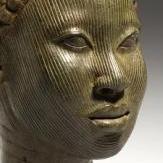

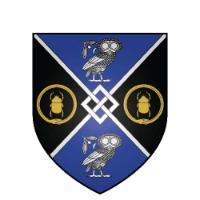
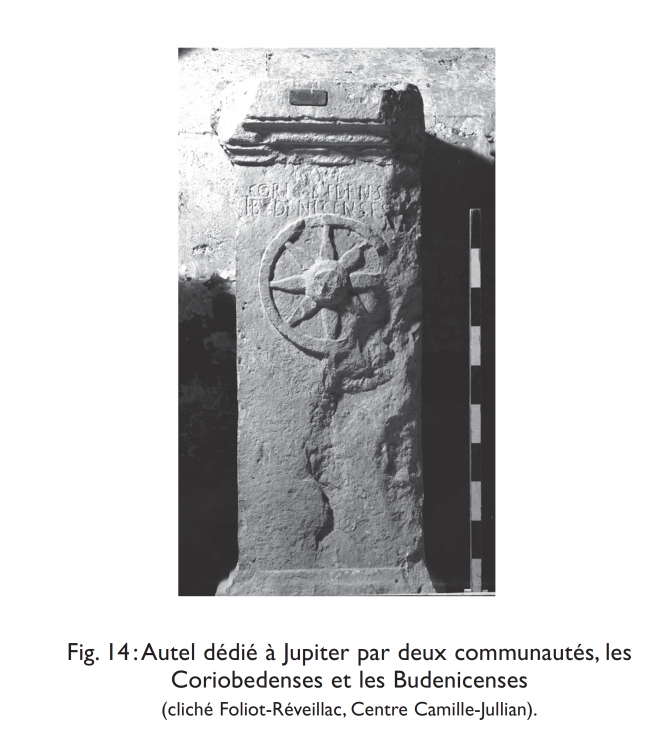
(1).thumb.gif.b5909d3df98a8ec15dc452423f219bc5.gif)

